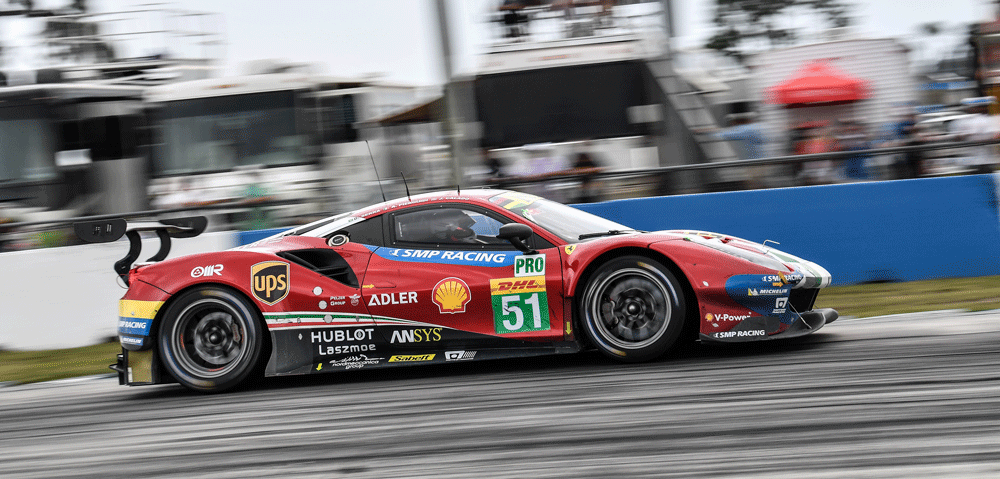Ferrari Competizioni GT is leveraging ANSYS simulation software to create next-generation vehicle designs and refine the aerodynamics of its race cars.
Every two or three years the Ferrari Competizioni GT team engineers an upgraded racing GT within a 12-month window. Production efficiency is the formula for their success and the team has historically used ANSYS Fluent meshing, in particular the turbulence models and solver technology.
Adoption of the new Mosaic-enabled Poly-Hexcore meshes greatly accelerated the simulation process. The team leveraged automated workflows to cut hands-on development time, use parallelization to create high-quality meshes faster, and solve in ANSYS Fluent more efficiently — creating three times as many simulations without additional development time or resources.
“Mosaic-enabled meshing is making a considerable impact on our aerodynamics designs – letting us achieve improved accuracy using far less cells and solving in half the time,” said Ferdinando Cannizzo, head of GT racing car development at Ferrari Competizioni GT.
“With Mosaic technology and the Fluent end-to-end workflow, our team runs three times as many simulations in the same amount of time and develops cars faster than we ever could before.”
“Ferrari Competizioni GT cars represent the pinnacle of racing performance and we are proud to help them engineer new aerodynamic designs to obtain more victories on the track,” said Sandeep Sovani, director of the global automotive industry at ANSYS.
“Teams are always looking for performance advantages and Mosaic meshing accelerates all stages of the simulation workflow, answers design questions sooner to help maximize production efficiency and supports tight development timelines.”


